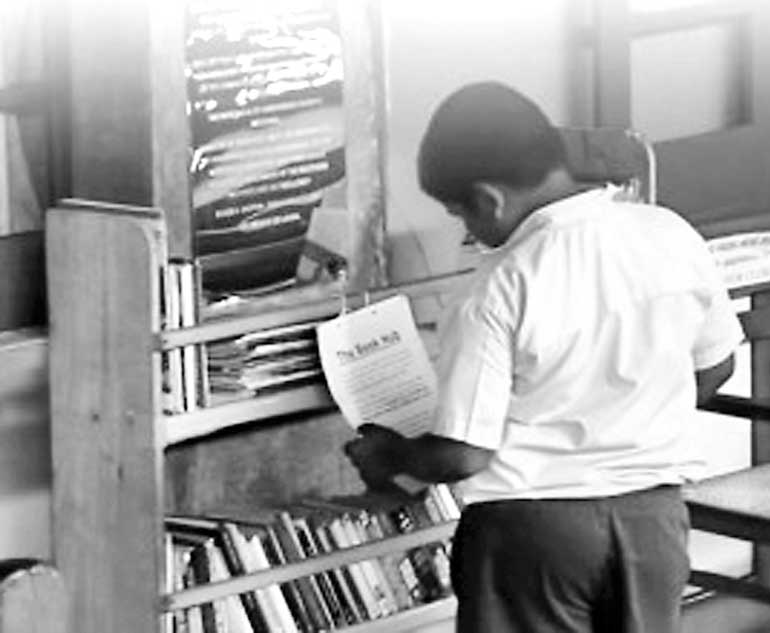Sunday Feb 15, 2026
Sunday Feb 15, 2026
Saturday, 5 August 2017 00:02 - - {{hitsCtrl.values.hits}}
 What a wonderful idea a young man from Ambalangoda has come up with. His name is Dilshan Dissanayake. His venture is the ‘Book Hub’. In his own words, the project he is trying out depends on one thing – trust.
What a wonderful idea a young man from Ambalangoda has come up with. His name is Dilshan Dissanayake. His venture is the ‘Book Hub’. In his own words, the project he is trying out depends on one thing – trust.
Dilshan’s is a simple operation. He keeps a book rack or better say, rack of books (a book rack can be without books) in a convenient spot at railway stations. Of course, it’s done with the permission of the Station Master, the boss of the station. Knowing red tape in Government institutions, he would have obviously got permission from his ‘big boss’ – the general manager/head of the Railway Department.
The Book Hub is, in a way, a mobile library. Anyone can pick a book and go, read it and return it. No other formalities. No strings attached. There is no membership. No fees are charged. No records are maintained as to who has taken a book. No target date to return a book. As mentioned earlier, the whole thing is based on trust.
When interviewed by Roar Life, Dilshan said that generally we consider Sri Lankans cannot be trusted – If he takes a book he may not return it. But in what Dilshan is trying out, he is confident that those who take a book will read it and return it. He works on the premise that if you trust the others, they will read and return the books.
So far he is happy with the progress. Everyone has returned the books they had taken. In fact, one person had returned the book with a nice cover.
When Dilshan started the Book Hub he only had a few of his own books to put on the rack. Once the others realised the value of what Dilshan is doing, they had given him books. The initial success of the project prompted him to open a Book Hub at the Matara station. There he didn’t have a rack and a friend had given his rack taking his own books out.
Dilshan mentioned in the interview that at a meeting with the General Manager of Railways (GMR), he had agreed to let Dilshan open in 12 more stations. In addition, the GMR will also let him have the Book Hub in three long distance trains. Commuters will then be able to pick a book or a magazine and read during the journey.
Dilshan has drafted a few hints on the use of the Book Hub and displayed them in the form of a simple poster in Sinhala on the book rack. The approach is very positive. He does not sound commanding and addresses the reader in a polite and friendly manner. Rather than asking the reader to be careful in using a book, he says: “I know you will not bend the pages, draw lines or scribble and make it untidy. Please don’t do it”. That is the tone of his appeal.
He tells the reader that he trusts the unknown person to be a proven honest Sri Lankan and that he is certain that the person will maintain that confidence.
The recently formed Roar.lk (it’s just three years old) media network deserves all credit for unearthing Dilshan’s venture via its Life section and presenting it as an eye-opener to others who may have similar ideas.
Looking back, in the 1950s I remember McCallum Book Depot running a book stall at the Colombo Fort station. It was well-stocked and books, magazines and newspapers were nicely displayed. We could easily read the headlines in the newspapers the way they were displayed and of course, buy a newspaper if we wanted to. I haven’t been to a railway station for several decades – possibly they still have such bookshops or in this internet and smartphone era, they may have closed down being unprofitable.